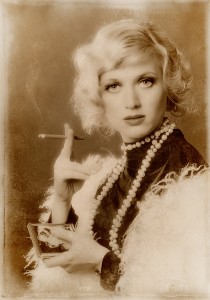
A while ago, a jock wrote to me, asking for advice:
“I’m trying to build my on-air radio career, and I’d really like to play up the fact that I’m female, to develop a female personality.
“My concern is that I would offend a male audience.
“Do my listeners want to know about me? Do they care? Should I make them care?
“I have never believed that the sexes are equal…rather that we are uniquely different.”
I do not believe one needs to play up the obvious. Assuming that the listener can tell from your voice that you are a female, why bother to stress what the listener always knows?
If you are a woman and you have a personality, you will be a female personality.
Your desire should be to develop a personality. Your personality.
Whoever you are should be reflected in that personality: gender, age, race, sexual preference, childhood, intelligence, prejudices, fears, desires, hobbies, habits, spirituality (or lack of).
(Note I said “reflected,” not “mirrored.” I am not suggesting these things should be held up on a placard for your audience to see; I am suggesting that who you really are should have an impact on who you appear to be on-air.)
If as an air talent you see yourself as uniquely different because of your gender vs. uniquely different because of who you are as a human being (which includes gender among 10,000 other important variables), you are limiting yourself.
To take a female example, Oprah Winfrey is successful not because she’s so different from male talk show hosts. She’s successful because she’s so different (i.e., smarter, better prepared, more thoughtful, talented, intuitive and ambitious) than most talk show hosts, period.
Her success is not due to her presenting herself as “a woman” or “as an African-American” or an “African-American woman” or a “single woman” or a “single African-American woman”; it is due to her bringing herself onto the stage every day, with all the components that self comprises.
You are putting on blinders by asking if someone might be alienated if you share the most interesting parts of your life with them.
Do they want to know? They can’t answer that in advance.
Do they care? If you share it in a way that they can relate to, yes.
Should you make them care? Absolutely.
In concentrating upon developing yourself as a female personality, you are rushing headlong into the female radio ghetto to which (mostly male) program directors have assigned women over the years…and which many have struggled to overcome for their entire careers.
If you ask me for sources of information/instruction on developing a personality, I can offer some suggestions.
But helping you develop a “female personality” would be helping you buy a one-way ticket to that ghetto.
 In 1967, when Paul McCartney was 24 years old, a newspaper reporter asked him if he’d ever taken LSD.
In 1967, when Paul McCartney was 24 years old, a newspaper reporter asked him if he’d ever taken LSD.




